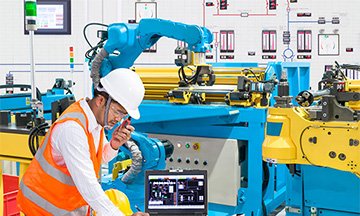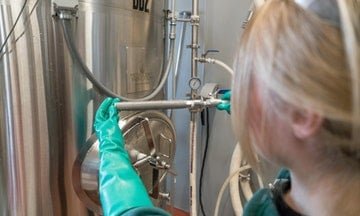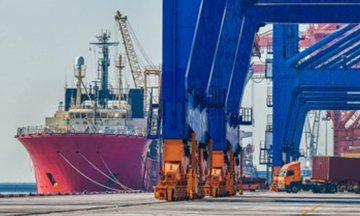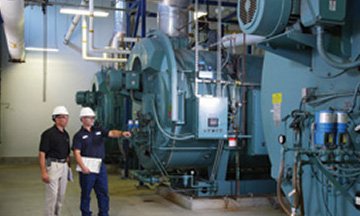Process Plant Optimisation, Revamping, and Debottlenecking
Course Overview
The optimisation of process plants requires effective management of maintenance operations and equipment, along with plant reliability and durability.
What is plant Optimisation?
The vital aspects of process plant optimisation are related to system energy management and the reduction of energy consumption. Many industrial processes and systems currently offer significant potentials for savings. However, bringing significant process changes such as modern controls and newer technologies can also enhance the opportunities for plant optimisation. This Zoe course will discuss the importance of monitoring and adjusting process plant operations. You will learn to do this in a way that sustains optimum levels of efficiency. This is done while maintaining safe and reliable operational procedures.
What is the meaning of debottlenecking?
Why is this “Process Plant Optimisation, Revamping and Debottlenecking” training program crucial for effective process plant management? The main aim of a revamp is to improve basic parameters like volume or processing efficiency. Revamping and debottlenecking require flexibility in planning and proficiency in the right engineering gear. Therefore, to optimise and maintain the fundamental performance of a unit, this program is important to take you beyond a surface level of study.
This Zoe training course will provide you with a comprehensive view of the process of how to optimise offsite plant operations including design, storage facilities, and inventory management, understand utility management, and expand your knowledge on optimisation, revamping, and debottlenecking process plants.
Course Objectives
Following the completion of this Process Plant Optimisation, Revamping and Debottlenecking training program effectively, delegates will be able to:
- Understand plant optimisation and energy conservation in detail
- Describe and practice the managerial tools needed to effectively optimise plant operations
- Evaluate the concept of capacity creep and discuss the methodology of the cost-effective debottlenecking strategies
- Implement systematic methods of optimising plant reliability including root cause failure analysis, logic diagrams, fault trees, etc.
- Identify the role and importance of management and enterprise information systems in plant optimisation
- Acquire knowledge on risk management in process plant optimisation
- Describe utility management and rehabilitation in revamping and debottlenecking
- Assess the maintenance, energy, utilities, environmental, and safety parameters in revamping and debottlenecking
- Analyse economic, planning, and other project management issues
Training Methodology
This collaborative Process Plant Optimisation, Revamping and Debottlenecking training program will comprise the following training methods:
- Lectures
- Video demonstrations
- Quizzes & Evaluations
- Seminars & Presentations
- Group Discussions
- Assignments
- Case Studies & Functional Exercises
Like all our other training programs, this course also follows the ‘Do-Review-Learn-Apply’ model.
Organisational Benefits
Companies who nominate their employees to participate in this Process Plant Optimisation, Revamping, and Debottlenecking training program can benefit in the following ways:
- Benefit from training your employees on the definition and importance of mechanical information
- Learn about different roles played within the Process Plant Optimisation, Revamping, and Debottlenecking guidelines
- Learn and apply standards in equipment identification, equipment design features analysis, equipment performance calculations
- Understand safe operation and monitoring of equipment and its maintenance
- Delegates will be able to apply the gained knowledge through this course and practice skills and that will impact their respective companies.
- Maintain better organisational safety records
Personal Benefits
Individuals who choose to participate in this Process Plant Optimisation, Revamping and Debottlenecking training program can benefit from the course in the following ways:
- Improve your career opportunities and increase your ability to work across relevant global industries
- Secure a relevant job anywhere in the world with the right knowledge in Process Plant Optimisation, Revamping, and Debottlenecking
- Get promoted in your current job in the Process Plant Optimisation, Revamping, and Debottlenecking field
- Acquire the professional skills and knowledge required to accomplish your tasks with optimal competence and accuracy
- Master the knowledge and techniques to see the future of an effective Process Plant Optimisation, Revamping, and Debottlenecking process
- Discover how to work well with your machines and the risks of not being able to operate them accurately
- Contribute to your organisation by being knowledgeable enough to determine the need for a program/process at your workplace or understand an existing program better
- Get an opportunity to work through hands-on exercises in detail to gain the skills needed to facilitate a Process Plant Optimisation, Revamping, and Debottlenecking study
- Gain the skills to plan, manage, facilitate, and scribe for a Process Plant Optimisation, Revamping, and Debottlenecking project
Who Should Attend?
This Process Plant Optimisation, Revamping and Debottlenecking training program would be suitable for:
- Process plant technical professionals
- Engineers, technicians, and operators
- Supervisors and maintenance personnel
- Project engineers
- Engineering and technical personnel responsible for improving process and petrochemical plant, and refinery profitability
- Those who are involved in planning, managing, and ensuring energy efficiency
Course Outline
Module 1: Overview of Process Plant Operation
- Overview of Optimisation Technologies for Process Plants
- Elements of Process Plant Optimisation Procedure
- Constraints in Optimisation:
- Production
- Operation
- Economy
- Environment
- Optimisation Approaches
- Mathematical Models and Physical Models
- Correlation between Process Optimisation and Process Control
- Workshop: Examples and Solutions
Module 2: Process Plant Optimisation Basics
- Process Plant Optimisation
- Process Control Basics
- Elements of Process Plant Optimisation
- Components to Optimise Industrial Processes
- Mathematical Model of Process
- Process Variables
- Simulation Technology to Plant and Control
- The Basics of Heat Integration
Module 3: Energy Management for Businesses & The Environment
- Industrial Energy Management
- Energy Efficiency for Businesses and the Environment
- Energy Use and in Process Industry
- Energy Management Standard: Details
- Energy Management Standard: Features
- Obstacles for Energy Management Programs
Module 4: Energy Conservation
- World Standards and Benchmarking Guidelines
- Useful Practices in Process Plant Energy Management
- Energy Conservation Check List for Industrial Plants
- Energy Conservation Opportunities
- Energy Audit
- Energy Audit Types
- Benchmarking Energy Intensity and Usage
- New Energy Efficient Technologies
- Technical Evaluation of Potential Opportunities
- Economic Evaluation of Renewable Energy
Module 5: Plant Optimisation Activities
- Implications of Plant Optimisation Activities
- Technological Modifications to the Plant
- Technology Licenses
- Impact on Human Resources
- Good Safety ‐ Good Business
- Safety Costs: Costs of Injuries
Module 6: Revamping and Debottlenecking Strategies
- Revamping Strategies
- Production Capacity Enhancement
- Maintenance, Energy, Utilities, Environmental and Safety Parameters
- Economic, Planning, and Project Management Issues
- Case Studies:
- Optimising a Polypropylene Plant
- Debottlenecking Ethylene & Propylene Plant
- Revamping an Oil Refinery Plant











